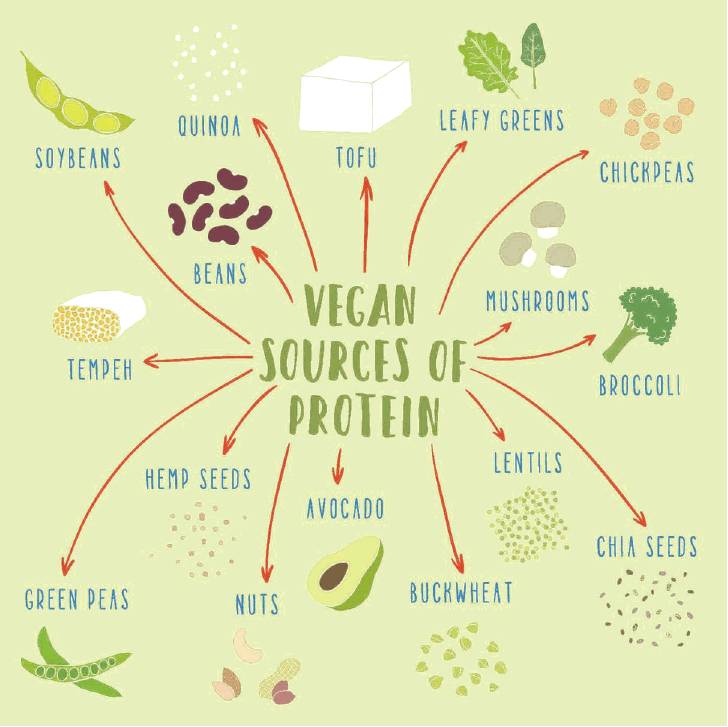

We need to think outside the meat-and-three-veg viewpoint, she said.
''It's thinking more about international cuisines, where people have either been vegetarian or meat hasn't been easy to get, and over the generations have developed wonderful dishes.''
Although she has done work for various meat-related organisations, Prof Heath is a vegetarian herself and is aiming to reduce dairy in her diet, she said.
All the nutrients we associate with meat and dairy, such as protein, iron and calcium are available from plant sources, although vitamin B12 can be a bit more challenging.
Corn chips with chilli beans, falafel and pita bread, hummus or peanut butter on bread, all have lots of protein. Legumes, which are high in many nutrients, may sound unfamiliar but we enjoy baked beans, hummus and falafel which are increasingly becoming part of our ways of eating, she said.
''Studies have shown that plant sources of protein are missing one or more of the essential amino acids you need, but as long as you have a variety of foods in the course of the day, you will get them from different sources, so we don't worry at all about complementary proteins anymore. A Weetbix for breakfast, and some peanut butter at lunchtime will do it.''
People who do not eat animal products need to be careful about B12, as the consequences of B12 deficiency can be serious, Prof Heath said.
All animal food has B12 - chicken, red meat, fish, eggs, dairy, although it's not made by the animal itself, but by bacteria. The best way for vegans to get B12 is through a fortified product such as soy milk or a supplement. People used to think brewers yeast, mushrooms and spirolina had B12 but the forms in those foods are inactive and your body can't use it, she said.
Iron is commonly associated with red meat, but legumes including soy products, wholegrain cereals, nuts, dark leafy greens and dried fruits, especially apricots, have good amounts of iron, she said.
''In fact vegetarians tend to have a higher iron intake than non-vegetarians, although it's not as well absorbed because of an inhibitor called phytate.''

However, there are a number of ways to deal with that - one is to make sure you have something with vitamin C in it at every meal, such as fruit, a vegetable high in vitamin C like broccoli, cabbage, capsicum or tomato. If people are not overweight, fruit juice with a meal will work.
It's actually the physical interaction with the iron in the gut which is why it has to be with the meal, Prof Heath explained.
''There are other tricks with phytate - I recommend people use canned legumes rather than soaking and boiling their own, because studies have shown the canning process actually breaks down a lot of the phytate. It's very convenient too.''
Tannins in tea and coffee also inhibit iron absorption, so she advises leaving two or three hours between a meal and a cup of tea or coffee.
An unexpected trick is using cast iron cookware, the type that goes rusty if you don't look after it properly.
''Particularly with things like tomato-based sauces that are quite liquid and acidic, the iron actually leaches out of the cookware into the food. It's still a tomato-based sauce but it's now got added iron in it, and you can absorb that iron,'' she said.
Adult men were unlikely to be deficient in iron but premenopausal women had to be particularly careful because their requirements were higher.
Most people know dairy is a good source of calcium but there are many plant-based sources as well, such as calcium-fortified soy or other plant ''milk'', tofu that has been set with a calcium compound, broccoli, kale, silverbeet, spinach, puha, taro leaves and taro, chickpeas and red kidney beans, sesame seeds and tahini and dried fruit - raisins, currants, prunes, apricots, Prof Heath said.
With more people becoming vegan there are now many expensive convenience meat and dairy substitutes, such as vegetarian sausages that may be high in salt, vegan ''cheese'' and many plant-based ''milks'', which may not have the nutrients of the animal products.
People sometimes think becoming vegetarian or vegan means you will lose weight, be healthier and it will be cheaper. That can be true but it depends on how you do it, she said.
If you use expensive convenience products or eat a lot of baked goods or pastry, it will be more expensive and less healthy, but if you stick to pulses, grains and international-type meals it will be more cost-effective and healthier, she said.
Prof Heath recommends starting with one meat-free meal a week or a day, or replacing just one food, and suggests people who can afford it sign up to one of the companies that deliver all the ingredients and recipes for a few vegetarian meals each week.












